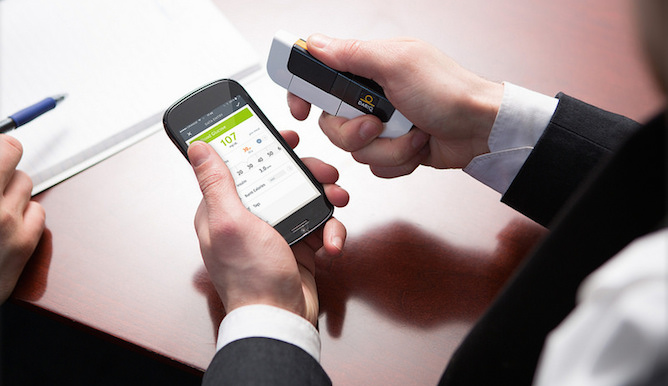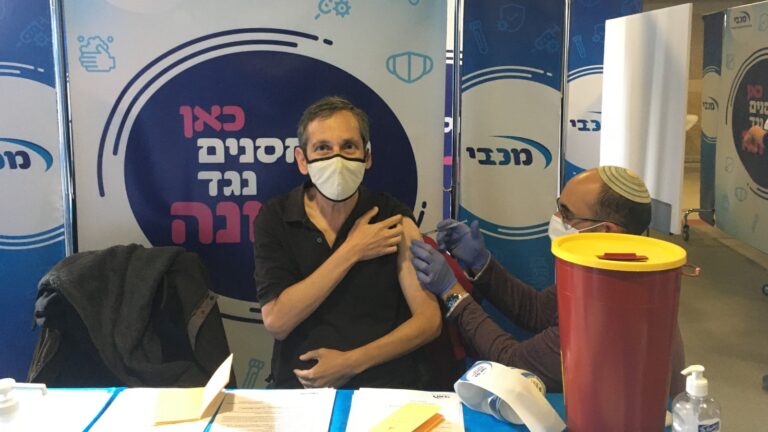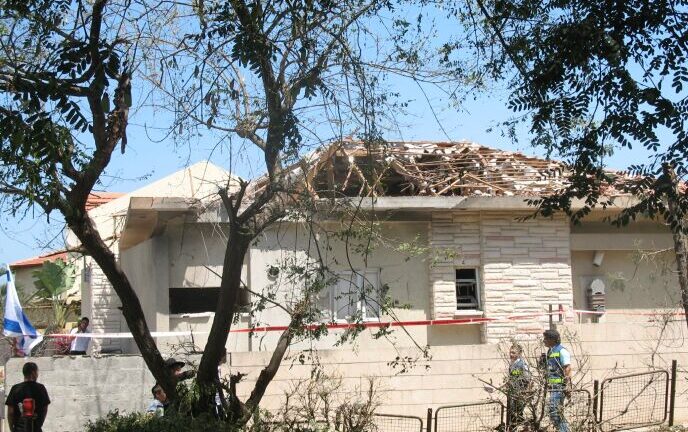Given Israel’s disproportionate success in the fields of medical devices and biotechnology, it is only natural that some of the most exciting health-related mobile and Web applications are coming from Israeli developers.
Some are designed for local use — such as Hadassah Medical Center’s mobile app for scheduling appointments, reviewing lab results and navigating to the center’s two Jerusalem hospitals; and Magen David Adom’s mobile app providing access to medical guidance, safety advice and training videos.
Many others are still in development, such as Sleevely, invented by two Israeli dads to help parents monitor and track their baby’s bottle feedings; and a mental-health app out of Tel Aviv University that detects changes in patients’ behavioral patterns, and then transmits them to professionals in real time.
ISRAEL21c here highlights 12 health-enhancing apps from Israel that can be used virtually anywhere. L’Chaim (to life)!
1. The cloud-based Dario diabetes management platform from LabStyle Innovations is an iOS and Android mobile and website app – rated No. 1 medical app on the App Store in a few countries — connected to a pocket-sized blood-glucose monitoring kit. Patients, medical professionals and caregivers (so far in UK, Italy, Australia and New Zealand, but soon in Canada and Germany) can access and analyze data in real time as well as from histories. Additional features include carb counts and effects of physical activity.
2. Healarium developed a mobile app for the Mayo Clinic that lets cardiac rehab patients record blood pressure, weight, blood-sugar levels, minutes of physical activity and dietary habits over a three-month period, and suggests educational activities geared to changing lifestyle behaviors. According to a study by the Mayo Clinic and the Israel-US Binational Industrial Research and Development (BIRD) Foundation, using the app reduces cardiac readmissions by 40 percent.
3. The AirSonea personal wheeze monitor by iSonea uses an app and connected device to enable people with asthma to manage their condition at home, on the go or in a medical setting via a technology called acoustic respiratory monitoring. iSonea was founded through the 2011 merger of Karmelsonix of Israel and PulmoSonix of Australia.
4. The mobile app CathMaps+ for heart patients stores medical history and uses GPS to locate the nearest cardiac catheterization lab almost anywhere in the world, in case of emergency. It’s available in English and Spanish, and soon in French and German, for iOS and some Android devices.
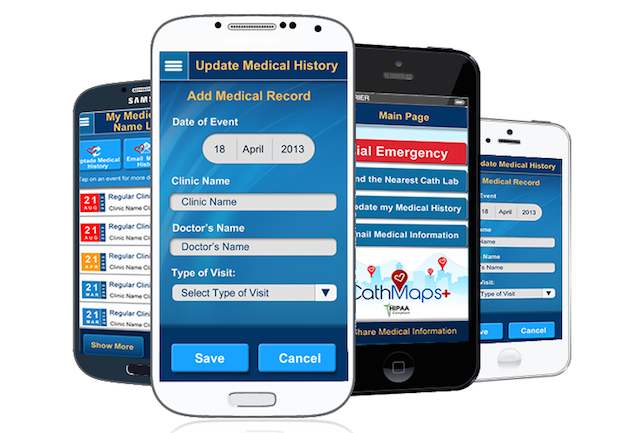
5. Aerotel Medical Systems’ Home-CliniQ application transforms any home PC or tablet into a medical data acquisition hub. The idea is to ease chronically ill patients’ burden of monitoring medical parameters while enhancing their quality of life. It can connect to various home monitoring devices, such as Aerotel’s HeartView ECG device, via Bluetooth and simultaneously transmit the data to an Aerotel receiving center.
6. The GeneG mobile app and associated website, created at Tel Aviv University, allows individuals to access and analyze their genetic data after undergoing whole genome sequencing. Mobile access to one’s genomic information furthers the global goal of personalized medicine, and makes it easy to order repeat or new genetic tests. GeneG could one day predict the safest and most effective medications for an individual.

7. The Tawkon app is a health tracker that lets you know when your phone emits higher-than-normal levels of radiation, using a metric called SAR (specific absorption rate). When SAR gets high, Tawkon suggests ways to lessen your exposure – such as using a headset. Tawkon also monitors your phone usage over time and tells you how much radiation you’ve been exposed to, and can be used as a family health tracker for kids’ phones.
8. MakeMyPlate helps plan and portion healthful meals in a visual, intuitive and fun way. Choose the lifestyle (i.e. gluten-free) that suits you best, and MakeMyPlate acts as your personal nutritionist, suggesting flexible meal ideas that are displayed on a plate and fit within the limits of your diet.
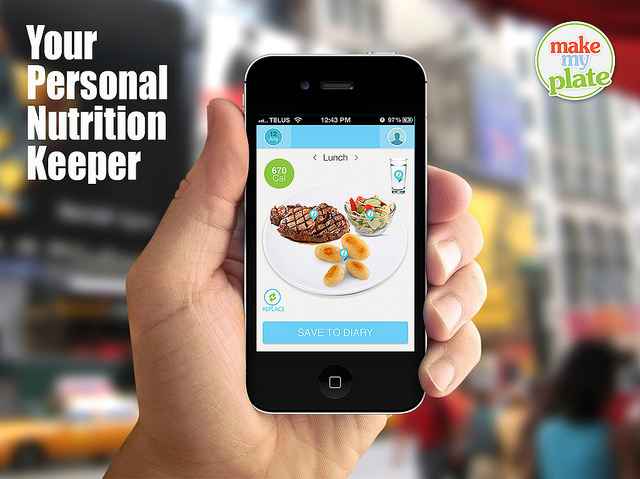
9. The WisePhone app transforms smartphones into easy-to-use devices for seniors via an interface that overrides the Android system and retains only the essential functions. It also includes an S.O.S. button that sends a text message — including the user’s location — to predefined contacts. If a contact person calls the WisePhone user after receiving the S.O.S. message, the application automatically receives the call and activates the smartphone’s speaker.
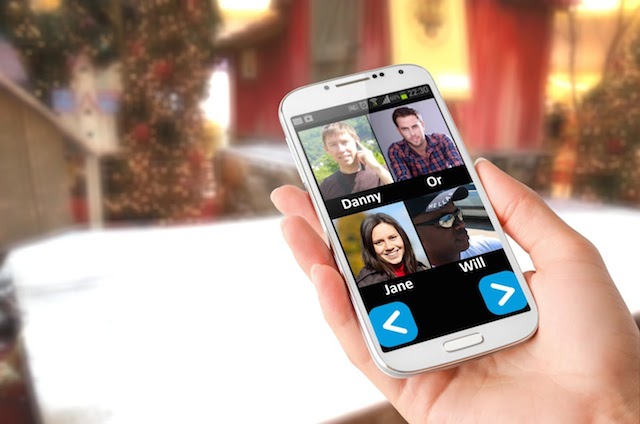
10. Qure uses a matching engine to help physicians anywhere identify and locate specialist colleagues for consultations, group collaborations or discussion groups.
11. Totally Pregnant, available for iOS and Android, allows moms to track baby’s growth, their own health, receive expert advice based on their location and view 3D images of fetal development. Users can share sonograms in photo albums, watch informative videos on things like pregnancy yoga and even shop for their little bun in the oven. The startup recently released an international version and is available in the US and 64 other countries.
12. HelpAround helps people with diabetes find someone in their vicinity with a glucose tablet, meter or dose of insulin, and provides a button to press for emergency responders in case of a diabetic coma or seizure. HelpAround also features a crowd-run, anonymous platform for advice and support from others using the app.




